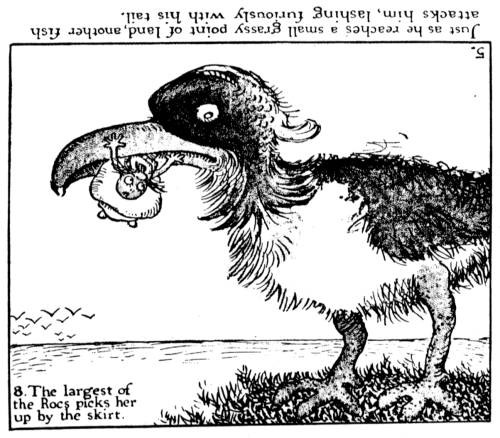Little Willie, for a lark
Fed the baby to a shark.
Saying as he watched it swallow,
“Stomach ache is sure to follow”.
Little Willie, for a lark
Fed the baby to a shark.
Saying as he watched it swallow,
“Stomach ache is sure to follow”.
B. How did you taste?
Contactless cards? I wouldn’t touch them.

These beautiful crocuses are out unusually early. Perhaps winter has not been so cold after all, or perhaps the purple slate we put down has absorbed more sunlight and warmed the soil.
Crocus seems to come from Latin and Greek, κρόκος, in turn borrowed from words in Arabic, Hebrew and Aramaic that mean saffron. Crocus is modern but the OED says Old English had croh, although I haven't found a source for the word.
Jest in time!
All my life I've been laughed at. I grew up on the wrong side of the cracks.

Today I had to go out early and arrived back home to witness this sunrise, that made me think of "Rosy-fingered dawn", a kind of catch phrase in Homer's Odyssey. Homer was writing something originally passed down by recitation in front of an audience and it would have acted as a kind of anchor: "A new day dawned: our heroes arose and..."
The transcribed Greek is
emos d' erigéneia pháne rhododáktulos Eos
which means I think something like "when the new-born appeared, the rosy-fingered dawn". We can recognise some fragments, even though we don't know Homeric Greek. géneia must mean born (as in genetics), rhodo rosy (and it's possible that's how Rhodes got its name), dáktulos finger (think pterodactyl, "wingfinger"), Eos dawn (as in eohippus, "dawnhorse", a small prehistoric mammal related to modern-day horses. Many paleontogists have a poetic streak.
This set me to browsing "Rosy-fingered dawn" and I found a marvellous new translation by Emily Wilson. "Dawn appeared and touched the sky with roses" is her simple, uncluttered version of that famous line, and I think it's a really beautiful translation.
Q. What’s the difference between a dresser for storing clothes, and a comedian's underwear?
A. One is a chest of drawers and the other is a jester's drawers.
Traveller: Please purchase me a rail ticket from Mousecow to Lemmingrad.
Agent: Of course Sir.
Traveller: How fur is it?
Agent: 713.9 kilometres Sir. Shall I put it on jerbil?
"I love your solitaire diamond", said Tom admiringly.

I used to work for this particular company. Then I moved to one that didn't give a monkey's.
I started reading this famous book that has no proper ending. I've not finished it yet.
I used to breed German shepherds. But there's no demand for shepherds anymore. Especially German speaking ones.
I've changed my door locks. They're all Harvard now.
Basalt: often associated with Attery
Beryl: risk of head cold
Dolomite: US purchasing power
Gneiss: gnot gnasty
Gold: often in head
Granite: woolen garments produced by older female relative
Marble: wife of Parble
Quartz: two-pint bottles
Salt: often associated with battery
Slate: time for bed
Recent I opened a business selling china and stoneware containers for hot drinks: tea, coffee, hot chocolate, etc.
It's a mug's game though.
'Synchronicity' is the idea that events can happen at the same time because of a deep principle of the universe that depends, not on cause and effect, but on meaning.
To be clear, I don't think it is real effect. It was put forward by Carl Jung (who I think believed in a collective unconscious that somehow makes us all part of a greater whole) and later adopted by others, among them Arthur Koestler, who wrote in The roots of coincidence about (the details are from memory) meeting someone at a bus stop. A clear winter night, and Koestler pointed out the constellation Orion. The man said his name was O'Ryan, and showed the back of his hand, with seven small moles that looked exactly like the constellation.
A few days ago I came across an article about synchronicity in a journal published by the Royal Statistical Society. Its main idea, I think, was to explore whether statistics could be used to examine claims for synchronicity.
Shortly after that I was looking at the cartoons of Gustave Verbeek - see earlier post - and this reminded me of an odd experience I once had.
Here I feel a little like a Victorian literary character, sitting in a club, saying “You must make up your own minds Gentlemen, about this true story that once happened to me.” And then I would puff reflectively at my cigar before beginning.
'I came across Verbeek first in the 25-year long column written by Martin Gardner in in Scientific American, until 1979. I was an avid follower all that time, but couldn’t get a copy every month, sometimes the newsagent would have sold out.
One night, passing through Kings Cross station, seeing a W.H.Smith shop - here's the important bit -
I knew I should visit the shop and buy Scientific American, and it would MENTION ME.
I did and it did. My hero Martin Gardner had referred to a small article I had written. I had absolutely no reason to expect this, we had never corresponded, I had no information about what his next topic would be, I am not famous and this was the single work of mine that he ever mentioned.
But I have never forgotten the feeling I had at the time, that this was destined.’
A regrettable accident. The plane went down. Don't look like that and wear that frown.
They were playing chicken.
I think I first became aware of the work of Gustave Verbeek from Martin Gardener's long running column in Scientific American.
In the early 20 century Verbeek drew strip cartoons with a unique selling point. Each cartoon had just six frames, but the story had 12 pictures, because each picture, when turned upside down, was transformed into a different picture! Here's an example, probably the most famous. I got this animated GIF from Wikipedia *. Wait a few seconds and it will invert and you'll see what I mean.

I've look at this many times, but still find it astonishing. Conceiving and drawing it must have been very difficult and time-consuming, and as far as I know no one since Verbeek has tried to emulate what he did, at least as a way of earning a living.
* From The Upside Downs of Little Lady Lovekins and Old Man Muffaroo "A Fish Story", by Gustave Verbeek.
Of course, as we know, this wasn't a war,
But a peace-keeping mission. Nothing more.
Neyther mayst thou ryse, cough, spyt, or nese
A. Barclay, Egloges, ca. 1530
The word 'sneeze' was originally 'fneeze' and is related to Old Norse fnaesa = snort or sneeze. But it lost its initial 'f', and became 'nese', probably because 'fn' is such a rare word beginning in English (I can't find any examples in modern English). But later it acquired an 's'. Perhaps people thought the 'f' was a long s, ƒneeze, or possibly as the Oxford English Dictionary suggests adding an initial 's' to 'nese' made it sound sneezier. The word 'cough' sounds like a cough (it's echoic) and 'sneeze' sounds like a sneeze.
Going further back, 'fneeze, is probably from the same older root as Greek πνευ (pneu) = breath, as in pneumonia.
This change from p to f, going from Greek/Latin to Germanic languages, is a regular feature, first articulated by Schlegel in 1806. Other examples are pyr->fire, pod->foot, pater->father, penta->five, pulo->fowl, and (more surprisingly) port -> ford. (So a ford is a gateway/door (or port)).
See here for more discussion about this sound change, part of Grimm's (one of the fairy tale brothers) law.
“What a rotten useless letter”, Tom said dismissively.
When a cat rubs a licked paw over its eyes
As it must have done many times before;
Why does it always then look surprised?
Can anyone elucidate for me the why, or the wherefore?
This blog might contain posts that are only visible to logged-in users, or where only logged-in users can comment. If you have an account on the system, please log in for full access.